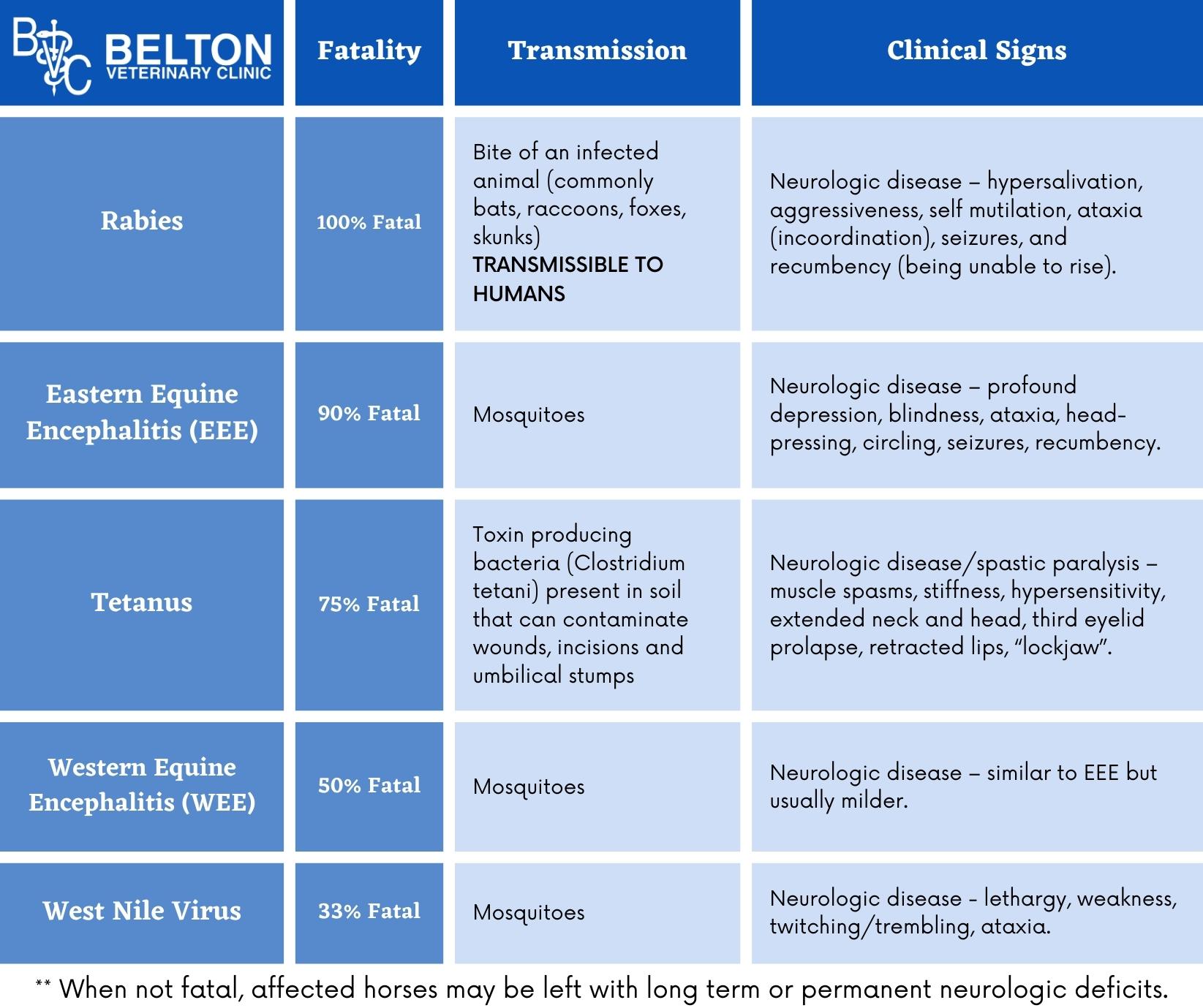Annual vaccinations are key to ensuring your horse’s health and well-being. But what vaccines does your horse absolutely need?
Core Vaccinations are those considered to be essential for every horse in the U.S. regardless of the age, sex, lifestyle or environment. The five diseases they prevent pose not only significant health risks, but are potentially fatal. All horses should receive the core vaccines on an annual basis, ideally in the spring. Don’t worry, this doesn’t mean your horse will get 5 separate injections at a time. Usually they get only one or two injections depending on the vaccine brand that is carried by your veterinarian. These vaccines are given intramuscularly in the neck.
The core vaccines include the following:

Risk-based vaccines may be required annually based on your horse’s unique lifestyle and environment. Factors that may play a role in determining whether or not your horse should receive additional vaccines include: geographic location, exposure to other horses and animals and breeding status.
The risk based vaccines include but are not limited to:
- Rhinopneumonitis (EHV-1 and EHV-4) – respiratory disease
- Influenza (type A) – respiratory disease
- Strangles – respiratory disease
- Potomac Horse Fever (PHF) – fever/colic/diarrhea, eastern U.S. near Potomac River
- Leptospirosis – uveitis/plancentitis/abortion/renal disease, contaminates water and soil
- Venezuelan Encephalitis (VEE) – neurologic disease (see EEE and WEE), central and south America, Mexico, southern U.S.
- Botulism – flaccid paralysis, forage/feed contaminated by Clostridium botulinum
To determine exactly which risk-based vaccinations your horse needs, you will need to talk to your veterinarian but in general, the respiratory vaccines such as rhinopneumonitis and influenza should be considered in horses that are regularly exposed to outside horses. This includes horses that are travelling to and from events but also includes those at boarding facilities. If your horse is not leaving the boarding facility but others are, then your horse has the potential to be exposure as well. Conveniently, these vaccines may be included with core vaccines as if often the case with a “7-way vaccine”.
Furthermore, weanlings and broodmares have their own vaccination routines. If you have a weanling or a broodmare you should talk to your veterinarian.